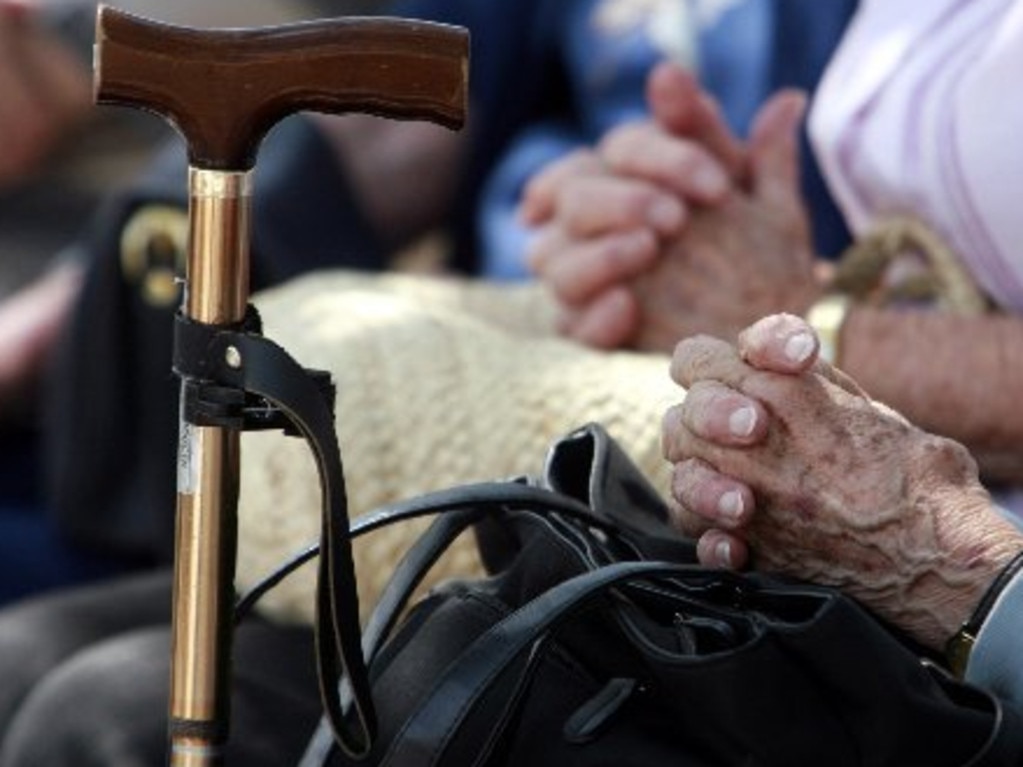ACT debates fraught issue of VAD for dementia sufferers
Terminally ill patients who lose their mental capacity may still be able to access voluntary assisted dying in the ACT, under a nation-first proposal.

Terminally ill people who lose their mental capacity would be able to access voluntary assisted dying under a nation-first proposal being weighed by the ACT government that could pave the way for dementia patients to end their own lives.
Labor backbencher Marisa Paterson put forward an amendment to what will be the most liberal euthanasia framework in the country if passed into law, allowing patients to appoint a “VAD attorney” who has the legal power to sign off on their access to the scheme.
The bill was debated for the first time in the ACT parliament last week, after the Barr Labor government handed down its response to a committee report examining the bill.
Dr Paterson, who was on the committee examining the legislation, said the proposed amendment would plug a gap in the existing VAD legislation in other jurisdictions.
She said under the amendment, a patient’s VAD attorney – who holds the patient’s power of attorney – would be able to authorise their access to the scheme to end their life.
“This amendment will basically address the situation where someone has capacity so that they’re eligible for voluntary assisted dying, they have an advanced condition, they’re suffering intolerably, and they’re at the last stages of life and they’ve gone through all the steps to access VAD,” she said.
“After the final assessment report, if they lose capacity at that point, then my amendments go some way to try to address that situation.”
Dr Paterson said there were two models available to address the issue of lost capacity, one where patients set out advanced directives of their wishes with the onus on doctors to carry them out, and the other using the power-of-attorney framework.
The advanced directive model was floated as an option to allow dementia patients access to VAD, but the ACT government has shelved the dementia issue until the legislation is reviewed.
Dr Paterson said while the proposal did not specifically address dementia patients, it would “go some way to progress” the public debate surrounding the disease and VAD.
“So we’re not yet at the stage of having the discussion around dementia,” she said. “But I do very strongly think if we … can’t take this next step, then we’re a very long way off having the discussion around dementia.”
The legislation is expected to pass the ACT parliament, with the Liberals opting for a conscience vote and the Greens in support of euthanasia.
Liberal health spokeswoman Leanne Castley said she was supportive of the legislation broadly but planned to introduce an amendment to remove strict liability offences for health workers.
ACT Greens leader Shane Rattenbury said the party would need time to review Dr Paterson’s proposal before pledging its support.
“The Greens are supportive of the principle of allowing people to make advanced care directives and would like to see that option available to ACT residents,” he said. “However, we had been advised that to introduce such reform at this time could delay passage of the legislation or extend the implementation time frame for VAD in the ACT.”
Anti-euthanasia advocate Brendan Long said he was concerned the proposed amendment could “increase the risk of a wrongful death”.
The government’s response agreed with two proposed amendments to more clearly define the requirement to have an “advanced” disease and for patients to be in the “last stages of their lives”.
An ACT Labor spokesman said the bill and the proposed amendments would be subject to a conscience vote, adding Dr Paterson had been clear she would “make a decision about whether to move these amendments following the conclusion of her consultation”.








To join the conversation, please log in. Don't have an account? Register
Join the conversation, you are commenting as Logout